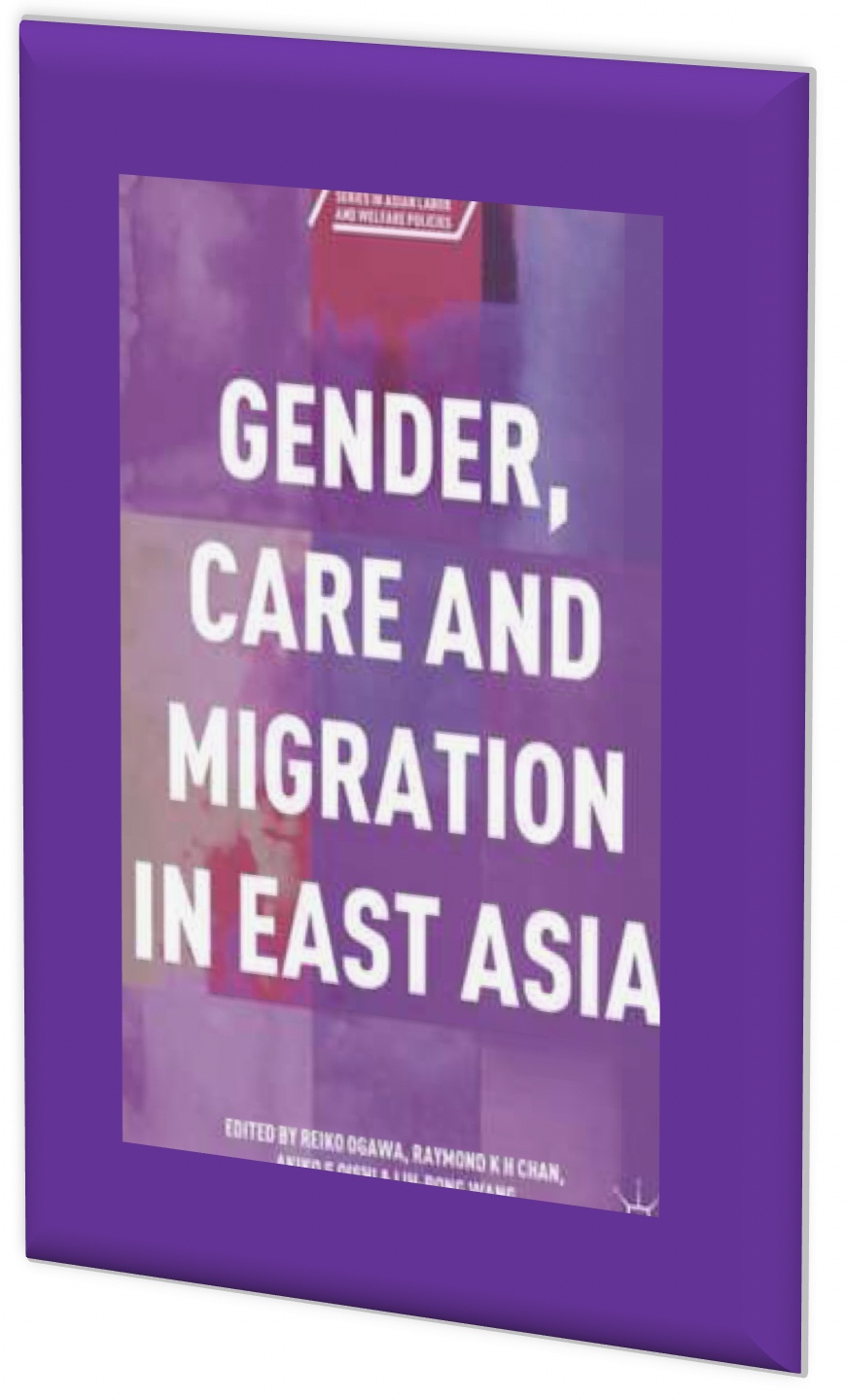CHIBA STUDIES ON GLOBAL FAIR SOCIETY
FORGING A FAIRER WORLD
-A multidisciplinary team of researchers looks at how to create a fair society — on a global scale.
Research Keywords: Global Welfare Society, Multidisciplinary Social Science, Fairness

With globalization comes the need to ensure that people from all cultures, countries and backgrounds are treated fairly and equally. The drive to create a just global society requires solid foundations in all countries, backed by informed government policies and strong support networks at local, regional and national levels.
Much previous research into justice and social change has been dominated by studies of Western societies, but the rapid changes experienced by Asian countries in recent decades have spawned a growing field of research focused on building fair societies in Asia.
Researchers in law, politics, economics and social sciences have recently established the Chiba Studies on Global Fair Society project, with the aim of creating an interdisciplinary research base to inform future local, national and international policies. Lead researcher on the project, Jiro Mizushima, says the key concept is fairness. “We define fairness as the basic element of justice,” he explains. “In fact, we argue that it exceeds justice in most cases. At the same time, we embrace values such as equality and liberty.”
Mizushima, whose research interests lie in welfare state reform in Europe, says the project aims to go beyond the traditional discussion of equality — it seeks to construct new principles that value diversity among people in a global society.
HOW DO WE ACHIEVE A FAIR SOCIETY?
The project consists of four interrelated research groups and a further six teams working to publicize the findings to a wide audience. Their focus is on challenging and overcoming unfair practices on all scales, investigating issues such as gender inequality, widening income gaps, migration, and the collapse of regional and marginal communities, both in Japan and around the world.
The key aims of the project are to investigate the development, transformation and limitations of existing welfare state models and to provide empirical evidence for how a fair society can be achieved in the 21st century. Mizushima has spent considerable time researching aspects of the welfare state in the Netherlands, including how it has responded to social challenges such as global economic fluctuations and an aging population.
“Fairness has been the core of legal and political philosophy since ancient times, and so another of our teams is examining equality and fairness from a historical perspective, comparing political, economic and legal standpoints over time,” he says. “Another group will analyze the meaning of fairness in the 21st century, providing us with fundamental guidelines to underpin our program.”
The team plans to form networks of academics across the globe. To this end, they have hosted two highly successful international symposiums and another one is planned for later this year. “Many of our members are involved in local and national policy-making committees, and they are key to informing policy makers of our work,” says Mizushima.
The project has published books and papers both in Japanese and English based on their research outcomes, and welcomes those interested in all aspects of social science,from law and politics to sociology and economics.
(CHIBA RESEARCH 2020)Members
Principal Investigator
| Name | Title, Affiliation | Research Themes |
|---|---|---|
| MIZUSHIMA Jiro | Professor, Graduate School of Humanities and Studies on Public Affairs | European Political History, Comparative Politics |
Co-Investigatior
| Name | Title, Affiliation | Research Themes |
|---|---|---|
| KOBAYASHI Masaya | Professor, Graduate School of Humanities and Studies on Public Affairs | Political Philosophy, Public Philosophy |
| OISHI Akiko | Professor, Graduate School of Humanities and Studies on Public Affairs | Labor Economics, Social Security |
| ISHIDO Hikari | Professor, Graduate School of Global and Transdisciplinary Studies | International Economics |
| OGIYAMA Masahiro | Professor, Graduate School of Humanities and Studies on Public Affairs | Japanese Economic History |
| MINAGAWA Hiroyuki | Professor, Graduate School of Humanities and Studies on Public Affairs | Labor Law |
| IGARASHI Seiichi | Professor, Graduate School of Humanities and Studies on Public Affairs | International Relations, Asian Politics |
| FUJISAWA Iwao | Professor, Graduate School of Humanities and Studies on Public Affairs | International Law |
| SATO Kentaro | Associate Professor, Graduate School of Humanities and Studies on Public Affairs | Political History of Japan |
| KAWASE Takayuki | Associate Professor, Graduate School of Humanities and Studies on Public Affairs | Philosophy of Law |
| YONEMURA Chiyo | Professor, Graduate School of Humanities and Studies on Public Affairs | Family Sociology, Historical Sociology |
| OGAWA Reiko | Professor, Graduate School of Humanities and Studies on Public Affairs | Sociology, Immigration Policy |
| XIANG LI | Associate Professor, Graduate School of Humanities and Studies on Public Affairs | International policy theory,International Environmental Economics |
Research report(2016〜2018)
The aim of this project is to redefine “fairness” under a rapidly globalizing economy and aging society, where inequality and poverty are once again featured as a social problem. With globalization comes the need to ensure that all people from all cultures, countries, and backgrounds are treated fairly and equally. Much previous research on justice and social change has focused on Western nations, however, the rapid changes experienced by Asian countries in recent decades have made the region a hotspot for field research on building a fair society.
The main purpose of this project is to investigate the development, transformation, and limitation of existing welfare state models and to provide empirical evidence for how a fair society can be achieved in the 21st century. For this project, researchers in law, political science, economics, and sociology have gathered and established the Chiba Studies on Global Fair Society in order to create an interdisciplinary research base to inform local, national, and international policies and build a network of academics across the globe. The key concept for the project is “fairness”. The project defines fairness as the basic element of justice, although at the same time embracing values such as equality and liberty. The project aims to go beyond the traditional discussion of equality and seeks to construct new principles that value diversity among people in a global society. In order to pursue research both from an academic and a practical perspective, the project formed four interrelated research groups and six teams working to publicize the findings to a wider audience.
The largest achievement for the project over the past three years is the hosting of five consecutive international symposiums titled “Chiba Studies on Global Fair Society”. Each year the project invited various refined academics from around the globe to pursue collaborative research on “fairness” from normative, political, and economic standpoints. The first symposium “Migration, Gender, and Labour in East Asia” held in 2016, was published as an edited book in 2018 from Palgrave Macmillan as Gender, Care, and Migration in East Asia with two of our main members as co-editors. The second symposium “Whither the ASEAN Integration: A Focus on its Inclusiveness” focused on global inequality and regional integration, the third and fourth symposiums “Future of Fairness: Comprehensive and Normative Examination” and “Understanding and Promoting Community Well-Being” analyzed “fairness” from a normative and philosophical perspective. The fifth symposium “Towards a Global Welfare Society: Care, Gender, and Migration in East Asia” explored migrant care workers and social issues. All of the talks carried out at the international symposiums have been published in academic journals.
 Along with such international activities, a study group has worked on “fairness” from a historical perspective. In March 2019, the group published an edited book in Japanese, Reassessing Modern Japanese History from Fairness (Kousei kara tou kindai Nihonshi). The project has also placed much effort in bringing academic findings and feedback to local communities as well.
Along with such international activities, a study group has worked on “fairness” from a historical perspective. In March 2019, the group published an edited book in Japanese, Reassessing Modern Japanese History from Fairness (Kousei kara tou kindai Nihonshi). The project has also placed much effort in bringing academic findings and feedback to local communities as well.
